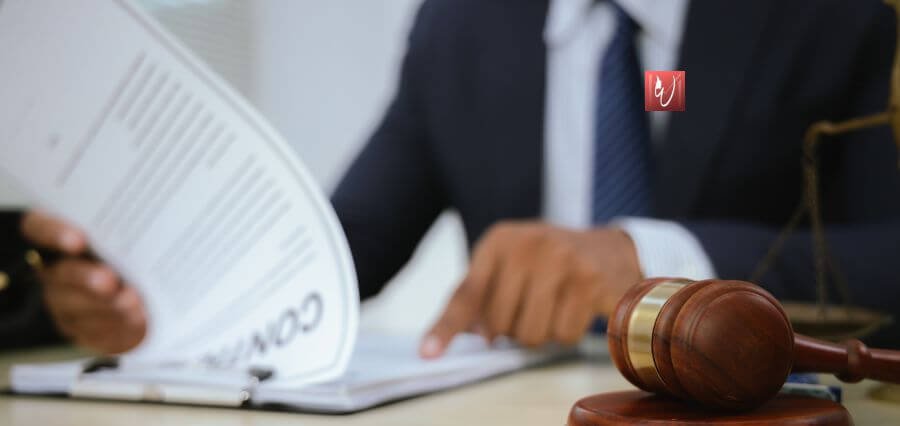Sometimes, the whole process of getting a lawyer can be intimidating. Legal issues come in so many different shapes and sizes and knowing how to react when faced with a problem can make all the difference. If one has a personal matter, business issue, or any form of legal concern, then it is important to know where to look for help.
Understanding Legal Advice
It is, therefore, recognition of a need for professional advice from the law. There are a multitude of issues that can be brought into consideration, such as lease disputes, employment-based questions, family law issues dealing with divorce or child custody, and even cases based on personal injury. Almost every adult will have a minimum of one legal issue throughout his life, according to statistics. For instance, a survey concluded that about 20% of respondents have had a legal problem that they thought was serious.
Legal professionals can provide insights into expert knowledge, and it is essential to understand this. They are trained and knowledgeable to interpret and advise on complex laws, considering the specific situation.
Selecting the Right Lawyer
Once the need for legal advice is established, then comes the identification of what type of lawyer to consult. Law is a very broad area of specializations; each is addressing a different area of concern. Some of the most common types of lawyers include:
- Family Lawyers: These professionals specialize in matters such as divorce, child custody, and adoption.
- Criminal Lawyers: If one faces criminal charges or needs defense against allegations, then a criminal lawyer is important.
- Personal Injury Lawyers: These are lawyers dealing with claims on compensation resulting from an individual injury caused by the negligence of another person.
- Business Lawyers: People operating businesses may look for the legal advisor’s opinion in the contract, disputable issue, or on issues of compliance.
Seeking the right specialization is of utmost significance as this alone will lead to getting appropriate and meaningful advice from him
How to Find a Qualified Lawyer
Locate an experienced attorney. People find reliable professionals usually due to recommendations. One should first ask a friend, family member, or colleague if they know an attorney that they can recommend. Online resources also play a critical role in finding attorneys; many legal directories contain reviews and ratings of lawyers based on client experiences. Websites like Avvo and Martindale-Hubbell can help with such a search.
Many bar associations also offer referral services. These organizations usually screen their members, which means that they are qualified and have the experience needed. Also, local bar associations usually have resources to help someone find the right attorney.
Preparing a Consultation
After finding a potential attorney, the next course of action would be to set up an appointment. Many attorneys offer free consultations. This allows a person to talk about their legal issue without cost. Preparing to see an attorney is important. Organizing important papers such as contracts, correspondence, or other documents relevant to the case will help facilitate a conversation.
Questions can be asked during a consultation. Questions on experience with similar cases and how the lawyer would handle the situation and about the fee structure would make it more valuable. Knowing how the lawyer communicates and whether they are approachable themselves will show whether they are well-suited.
Understanding Legal Fees
Legal fees are not fixed; they depend on the nature of the case, the lawyer’s experience, and the region. Some lawyers charge a flat fee for certain services, while others bill by the hour. The fee structure needs to be understood before beginning the process to avoid unnecessary costs.
Very often, attorneys will enter into a written agreement stating what services are to be rendered as well as a fee schedule. The savvy consumer of legal services would read that document carefully and question any points that he or she does not understand.
Others still accept contingency fees, which may be in different amounts. Others will even accept payment plans. This is quite common in the cases of personal injury. In a contingency agreement, a percentage of the settlement goes to the lawyer if the case wins. It reduces the burden of having to pay immediately, for those who do not have such a facility. Seeking
Legal Aid and Resources
There are alternatives for people who are not capable of employing a lawyer. Legal aid organizations help low-income individuals navigate legal problems. Many of the organizations practice areas include family law, housing, and similar matters. Requirements may vary, but most seek to help those falling within certain income brackets.
Another source is through community resources, such as local college law clinics, offering free or very cheap legal advice. These clinics have mostly law students who practice and are under the direct supervision of attorneys who are licensed to practice.
Preparation for the Legal Process
Once an attorney has been chosen, it is crucial to be informed about the procedure. Every case is unique, yet there are general principles which apply to all of them. Lawyers often guide their clients through parts of the action, such as submitting paperwork, attending hearing, and negotiating settlements. Organizing and remaining with an open communication with your lawyer is efficient.
Collecting evidence and record-keeping can do the rest to make the case a winning one. Whether it is noting events, photograph collection, or keeping correspondence, being proactive really makes the difference in building a very good base for the case.
Conclusion
Navigating a legal landscape can be intimidating but knowing exactly what to do when legal advice is called for can make the whole journey smoother. All of these need to be undertaken to resolve legal problems. Individuals must appreciate the value of seeking aid, getting a right lawyer, the implications on costs, and preparing for the process. It can allow people to walk into their legal issues with better confidence that will make them protected and also heard in relation to rights.





